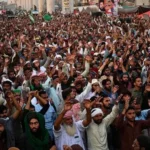Pakistan currently is at a turning point. Following years of political instability and economic upheaval, the country is going through a young but bright phase of stabilization. Combining indicators of political discussion, economic recovery, and fresh foreign involvement has produced a unique and favourable national climate. This is a strategic window of opportunity to support internal stability and increase alignment with the Pakistani diaspora, not just a break from reality. By means of a comprehensive plan anchored on inclusive government, legislative reform, and active diaspora cooperation, Pakistan may create a strong national image and increase its impact on the world scene.
National cohesiveness is crucial to internal stability. Reducing division and promoting unity depends mostly on inclusive government. This means making room for political communication across all spheres, guaranteeing socioeconomic fairness, and crafting laws that meet the requirements of every person—regardless of race, geography, or social level. Through this, the state may inspire active civic participation and regain public confidence. A coherent internal environment opens the path for less political conflict, more consistent policy execution, and finally a more stable society.
Concurrent with this, the millions of Pakistani diaspora worldwide who send remittances totalling over $30 billion remain a strategic asset yet untapped. These foreign Pakistanis are possible partners in national development, cultural champions, and innovators as well as financial contributors. Profiting from this possibility calls for institutional systems beyond remittance facilitation. It entails building organized forums for diaspora participation in policy development, business, cultural interchange, and policymaking itself. Think tanks, diaspora boards, and ministries like the Ministry of Overseas Pakistanis must be given authority to manage these initiatives thereby guaranteeing two-way communication and efficient cooperation.
Pakistan has to regain confidence by legal and structural changes if it is to fully use the diaspora. Institutional credibility starts with transparency, responsibility, and the rule of law. When foreign Pakistanis perceive a dedication to justice, decent government, and fair opportunity in their own country, their emotional and financial readiness to invest in Pakistan’s future doubles. Strategic changes in governance may also provide an atmosphere that supports both internal development and foreign cooperation, hence strengthening Pakistan’s reputation as a rising country.
Encouragement of strategic communication is also really vital. Stories, in the era of digital diplomacy and social media, change opinions more quickly than facts. Through coordinated internal and international communication campaigns, Pakistan must aggressively present its development initiatives, reforms, and achievements. Consulates, Diaspora sites, and embassies should be used to highlight good news about Pakistan’s development, resiliency, and creativity. By offering a fair and aspirational picture of the nation to the globe, coordinated media campaigns may also assist combat misinformation and negativity.
Aligning national goals with global networks changes the diaspora from a peripheral group into a pillar of national strategy. Doctors, engineers, professors, business people, diaspora professionals, can be mentors, financiers, and inventors for the country. Particularly Diaspora young people serve as a link between Pakistan’s growth ambitions and the global knowledge economy. Their involvement may inspire innovative ideas for public diplomacy, change world opinion, and propel innovation ecosystems.
National unity depends on closing the distance separating Pakistanis living abroad from those living here. Through inclusive policy frameworks, cultural interaction, and common developmental objectives, this helps both populations to align their expectations. Shared sense of identity may be strengthened by initiatives like cooperative enterprises, cultural events, and exchange programs. Moreover, political and legal inclusion, such as voting rights, dual nationality protections, and legal recourse access, deepness the link between the diaspora and the country.
All of these activities have their structural basis in institutional participation. Establishing and enhancing committed diaspora institutions guarantees continuity, organization, and strategic control. These organizations have to provide organized feedback, representation, and participation systems acknowledging the diaspora as equal participants in Pakistan’s destiny. Moreover, consulates and embassies have to be ready not just to provide fundamental services but also to be proactive centres of national branding and diaspora outreach.
National image-building reflects internal strength and worldwide confidence, not a cosmetic endeavour at all. Not just markers; political stability and economic recovery are facilitators of long-term national advancement. Driven by inclusive government and legislative change, a consistent domestic story presents credibility and strength. Diaspora involvement, meanwhile, increases Pakistan’s soft power, strengthens its voice in international venues, and draws global investment and creativity.
Pakistan’s current excellent atmosphere is a strategic opportunity to be exploited, not a permanent one. If used wisely, it may provide the basis for ongoing national progress, international cooperation, and a revitalized sense of Pakistani identity beyond boundaries. Built on trust, opportunity, and common goal, a homeland-diaspora synergy may help Pakistan’s voice be heard worldwide and guarantee that stability at home results in respect outside.
Pakistan’s road forward is apparent in a world where worldwide influence is increasingly linked to domestic cohesion and diaspora diplomacy. Through matching domestic stability with purposeful diaspora involvement, the nation may redefine its national image as a centre of promise, resilience, and international cooperation rather than as a land of crises.







